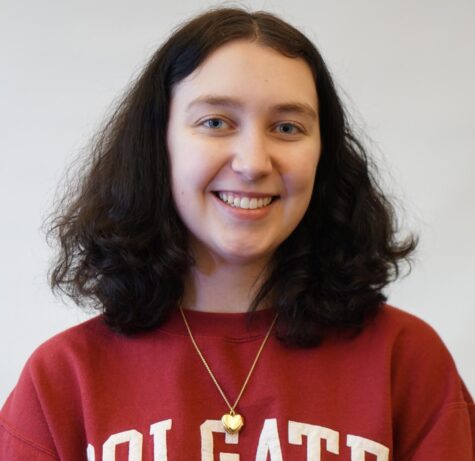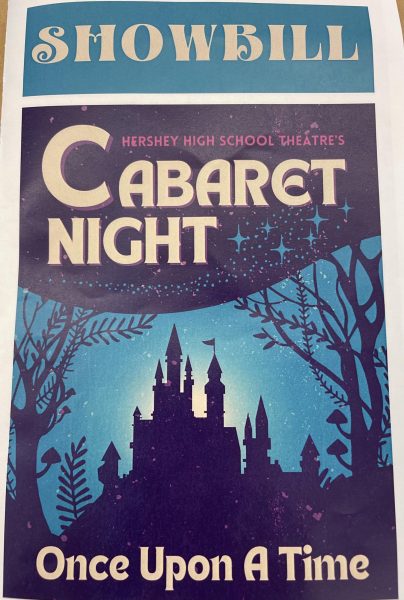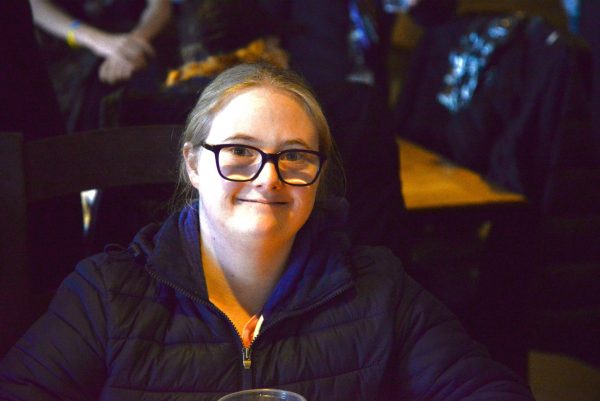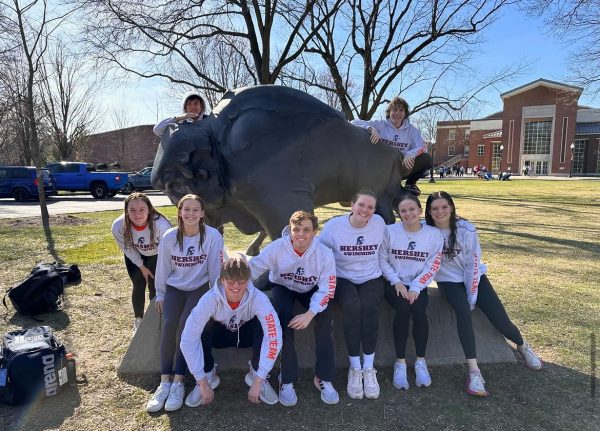Hershey Memory Team Trains for Competition and Everyday Life
November 12, 2019
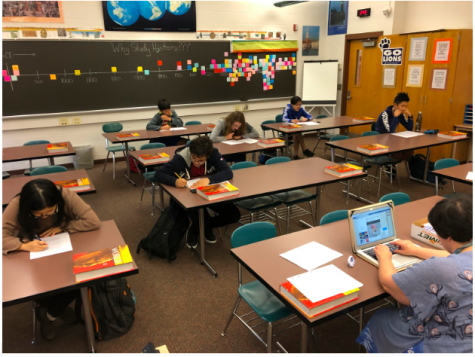
Unknown to most students, those on Hershey High School’s (HHS) memory team have set national records.
Started by Colette Silvestri, Hershey’s gifted support teacher, the team is challenged with techniques to improve memory. Students are also given the opportunity to enter a national competition with teams from all around the country. With the recent release of a documentary, Memory Games, interest has risen in memory teams as well as the benefits of memory training.
The documentary highlights a few top performers in the world of memory competitions, showing off the amazing feats they are able to accomplish. While Hershey High School was once one of the few schools with a memory team in the nation, a rise in popularity because of the documentary has led to a rise in competition, with more schools entering championships and creating their own memory teams than ever before.
At their practices, the members focus on a different skill such as memorizing cards, random words, random numbers, or poems. Usually, they are given fifteen minutes to study words and poems, ten to study numbers, and five to study cards. They must remember as much as they can in the allotted time and then recall the information in a certain amount of time, too. Usually, more than enough time is given for memorizing the information. Constant practice leads to better scores, preparing them for competition.
A team is formed in March for the national memory competition and practices year-round. Each year, the Hershey High School memory team goes to the national memory competition, usually hosted at Penn State University. Almost every year, the team places in the top competitors.
The national competition has a few categories. The USA Memory Championship website says, “The morning of the USA Memory Championship event will feature a Qualifying Round of four events.” Random numbers, while a basic topic, proves to be very challenging. Poetry takes memorizing words to a new level, where competitors must memorize an entire poem. Names and faces give competitors a selection of people, with an assigned name to a face. Speed cards challenge the participants to memorize an entire deck of cards in a short amount of time. These four categories are the qualifying rounds, and they are the ones that the Hershey Memory Team competes in.
The Hershey team has had many students place in the national competition, as well as set personal and national records in different categories. In 2018, one of the team members, Xuanxi Yang, set a national record in “Names and Faces.”
Everyone on the team, especially those who have placed in different categories, have a separate, unique way of memorizing and retaining the information provided to them. Yang puts a story with the person on the page. “I just look at the person’s face and try to think of a backstory for them; anything special about their name or their face that will make me remember them better,” Yang said.
The Hershey memory team is always open to new members. With the growing interest in memory training itself, the competitions will become bigger and the competitors will get fiercer, but in the long run, memory training will help in school and everyday life by making the task of retaining information much easier.
Including retaining information, memory practice has a huge impact on learning skills.
In an age of technology, it teaches one to have a greater attention span and focus more. “Training the brain to sit there and absorb information for fifteen minutes is a good skill to have,” said Silvestri.
Memory training isn’t a matter of IQ or intelligence level, it’s a matter of remembering and retaining the information given. “I’m improving the way the brain processes,” Silvestri said. Memory training is not only training the memory of the individual, it is teaching the brain to process quicker. “That’s all it is,” Silvestri said.
“It’s not a matter that your memory is bad,” said Silvestri, “You have to jar the brain, you have to practice, it’s painful, but in the end, it pays off with your grades and your focus.”

